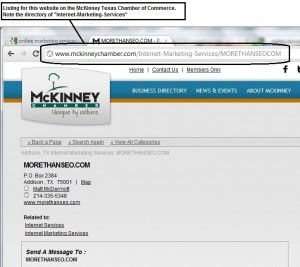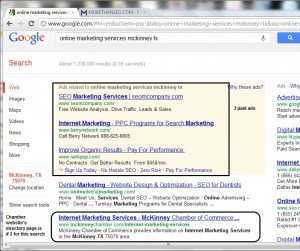Thank you to Mike Kawula for the opportunity to contribute to his recent blog post about tips to help small businesses use LinkedIn. There were some pretty interesting, and potentially helpful, tips in this post:
One thing I mentioned is how an optimized LinkedIn page (personal page or company page) can be optimized for the search engines. Most people don’t know that it is possible for their respective LinkedIn pages (including a company’s product/service pages) to rank in the search engines for specific phrases. Consider adding this strategy to your SEO efforts by using intelligent link building services to your LinkedIn page.
Feel free to contact me with your questions.



Our Social Media